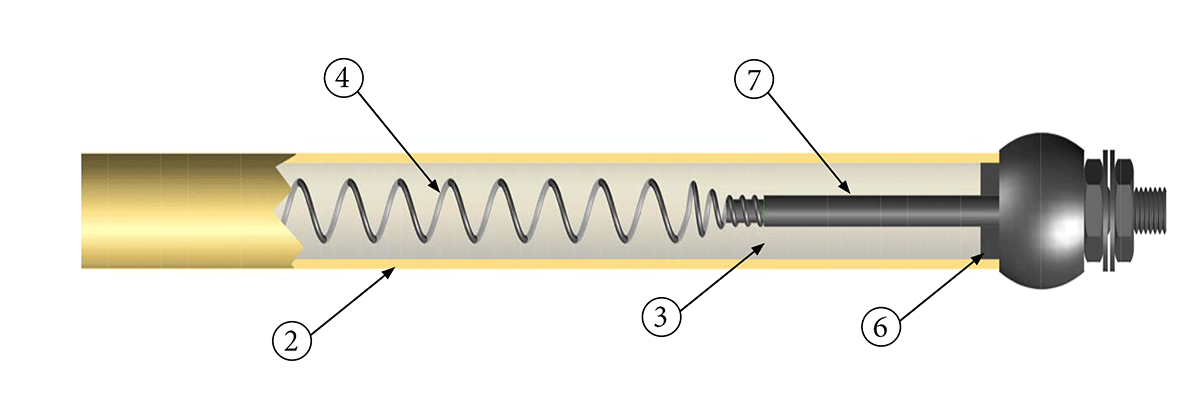TUBULAR HEATERS
Tubular heaters are used across a wide range of industries, in many different process heating applications, as they can be configured into almost any size or shape. Tubular heaters work on any of the three principles of heating- conduction, convection, or radiation. A tubular heater produces heat within a confined area. The result is heating directly radiated into the material, conducted via a suitable liquid or convected via a forced air system.
FEATURES
- UL & CSA Recognition.
- Incoloy 840 sheath standard on all items-allows for the widest coverage of applications and temperatures, plus gives a margin of safety should there by any unknown corrosives or contaminants in the application.
- High purity MgO powder compacted to provide maximum heat conductivity and optimum dielectric strength.
- Type ‘A’ 80/20 resistance wire sized to provide lowest wire watt density for maximum life.
- Fusion-welded junction between pin resistance wire to provide a 360° circumferential joint, giving superior strength and life.
- Choice of end seals for a variety of applications. See item 2, adjacent column.
- Integral cold pins centered in compacted MgO of nickel plated steel to provide optimum in current carrying capacity.
- 100% inspected for:
- Dielectric or Hi-Pot between conductors and sheath.
- Insulation resistance.
- Wattage.
ADDITIONAL OPTIONS
- Mounting methods.
- Bulkhead fittings
- Brackets
- Flanges
- End seals.
- Silicone resin for 300° F continuous maximum temperatures and the most economy.
- Epoxy for 266° F continuous maximum temperatures and high moisture areas.
- Vulcanized overmolded leads.
- Ceramic to metal end seals.
- Formations to nearly every imaginable configuration.
- Terminations-lead wires, plate terminals with screws, threaded stud.
- Other sheath materials available; copper, steel, stainless, Monel 400, lnconel 600, Carpenter 20, Hastelloy and Titanium. Consult factory.
- Special lengths, wattages and voltages.
Watt Density per application
- 90 Watts Per Square Inch
For heating clean water only in commercial and/or residential applications. Element life is sacrificed in favor of a low initial heater cost. - 60 and 45 Watts Per Square Inch
Industrial water heating – many aqueous solutions which are compatible with steel and Incoloy. - 23 and 20 Watts Per Square Inch
For heat transfer oil, cleaners, high temperature air and gas heating. - 15 and 12 Watts Per Square Inch
For lubricating oils, medium viscosity oils, high temperature air and gas heating. - 8 and 6 Watts Per Square Inch
For #5 and #6 fuel oil heating, viscous materials, raw crude oil, residual oils, high temperature air and gas heating



